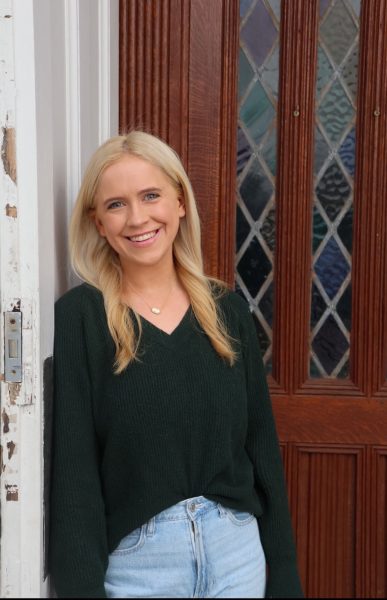“Look around. College is the best place to meet *the one*—but we’re not gonna be here forever.”
This is the opening line of the Marriage Pact, an online questionnaire that, upon completion, promises to use an algorithm to pair you with your potential soulmate based on your answers. While the questionnaire itself is low-pressure, as it just simply asks its users to rate their preferences on a numeric scale from one through seven. The underlying implications of quizzes like these often trigger stress among members of the Villanova student body. More specifically, single members.
According to a 2009 article in The Villanovan, 65% of the 2004 Villanova graduates are married to a fellow alumnus. This statistic makes sense, as many Villanovans share the same core values and have the same goals in life, making them compatible matches. However, it can put expectations and pressure on current Villanova students to find their potential matches during their time at the University.
The urge to find a potential spouse in college also stems from the fact that it is a place that serves as a “‘planning phase” for the rest of your life. Students begin to map out what their lives will look like during their college years and select everything from where they will live to what they will work as. So, naturally, who they will spend their life with is a potential consideration. But the question is, should it be?
While not all Villanova students feel this sense of pressure, it is fair to say that a good amount do. This claim is supported by the 3,007 students who filled out this year’s Marriage Pact, which is about 43% of the undergraduate population. Even if students say they are just filling out the questionnaire “for fun,” quizzes like this still foster a sense of urgency in finding someone before graduation day.
This sense of urgency is contrary to what the college experience is supposed to entail. College is advertised as a time of self-discovery and fostering one’s own passions. It is difficult to imagine being able to find yourself and your future fully if the decisions you make are being even slightly influenced by someone else. This is not to say if you are in a relationship that you cannot find the answer to this question of who you are during your four years, it just seems counterproductive to be actively searching for someone else given the context of this question.
Despite the calls from “relationship experts” and older sisters on finding yourself before entering a relationship, this advice does not alleviate the overwhelming sense of loneliness people feel, especially with flooded Instagram feeds of seemingly happy couples on holidays like Valentine’s Day. So, on the heels of this celebration of romance, many filled out this questionnaire, viewing it as a potential avenue to meet someone. While it’s contrary to what college is supposed to be about, wanting to find someone to potentially spend the rest of your life with can be tied back to this being the planning phase of life. Having that stability of a relationship is comforting, especially with the uncertainty of starting a new career and moving to a new city. But, often, it can feel as though people’s main goal is to find someone and if they don’t achieve this, they are somehow a failure. Even the Marriage Pact encourages users to fill it out because “It’s better safe than sorry.”
While people in healthy relationships are typically happy, relationships are not the only ways to achieve joy in one’s life. Spending time in college fostering your passions and discovering who you are is ultimately going to prove to be more fruitful than the results of a romantic questionnaire.



